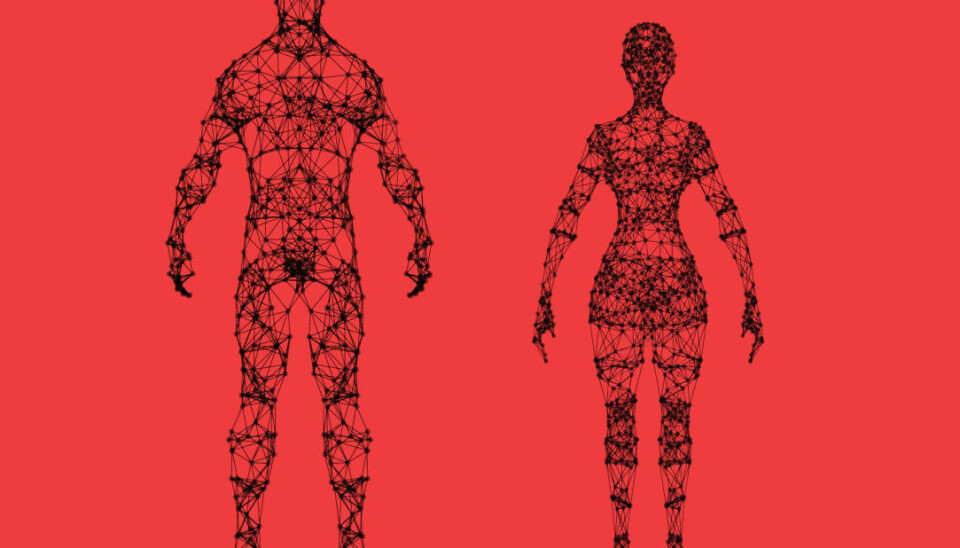
Is any part of our body cancer proof?
Who has ever heard of heart or spleen cancer? And what about the appendix?
Cancer afflicts people in many parts of the body – including the breasts, lungs, colon, brain, bones and prostate.
But what about other parts of the body that we don't hear about – like the heart or spleen? Are some organs more resistant to cancer than others?
It may seem like it. You won't find heart, spleen or appendix cancers on the American National Cancer Institute's list of cancer types.
This question demanded the expertise of researchers and professionals in the field.
Rare cases
It turns out heart cancer does exist – unfortunately. The cells in the heart can divide uncontrollably and grow into cancerous tumours as they do elsewhere. It's just not that common.
Elisabeth Jakobsen, Head of communications at the Cancer Registry of Norway, looked up the figures for heart cancer in Norway. Nineteen cases were documented in 2017, fifteen men and four women. And this number has remained consistent for several years.
Heart cancer tumours can arise in the heart itself, tumours are far more likely to spread to the heart from elsewhere in the body, according to the American Mayo Clinic. For cancerous tumours in the lungs and breasts, the path to the heart is short, but cancer can also spread through the body to the heart via the blood.
Due to its rarity, much less research and knowledge about this type of cancer are available. A University of Texas study claims heart cancer most often affects the young, while other researchers believe it most often impacts people in their 50s and 60s. A Norwegian study from the 1990s included thirty heart cancer surgery patients who were on average 42 years old.
Researchers agree that the prognosis for heart cancer is usually not good. However, early diagnosis, surgery and chemotherapy increase the chances of survival.
The reason heart cancer occurs so seldom is that the cells in the heart don't divide – they pump the blood and that's it. And where little cell division happens, there is less uncontrolled division that causes cancer, according to Scientific American.
But what about the spleen?
Fuzzy organ
The spleen is a fuzzy organ for most of us. Where in the body is it anyway and what does it even do?
A person's spleen varies in weight and length. The average weight is 150 grams, about as much as an apple. The average length is 10-11 centimetres, about as tall as a coffee mug. This bean-shaped organ is important for foetuses, because it produces red blood cells. It stops doing that once we're born, but continues to be important for our immune system and lymphatic system.
And cancer can – unfortunately – occur in the spleen.
As with the heart, tumours of the spleen can start in the organ itself or spread from elsewhere in the body. Cancer that starts in the spleen is very rare, but it happens. The spleen is part of the lymphatic system, so lymphoma can occur there. Also, in very rare cases, leukaemia can occur in the blood cells of the spleen, according to a Greek study. The symptoms include an enlarged spleen, and the treatment is the same as with other cancers.
Spleen cancer is far less frequent than heart cancer. The Cancer Registry of Norway has only documented seven Norwegian cases in the last 30 years.
Doctors used to believe it was okay to remove the spleen if it got injured, but they have gradually become less inclined to do so because the organ serves useful functions in the body. Nevertheless, we can manage just fine without the spleen.
We can also survive fine without our appendix – but can we develop cancer there?
Useless, but not cancer immune
Actually, our appendix isn't completely useless. Scientists have several theories about how it works in conjunction with the lymph nodes and glands or may be a place where bacteria break down the nutrition in the gut.
What is certain, unfortunately, is that cancer can also occur in the appendix or spread there. The American Cancer.net website lists six different types of tumours that can occur in this ten-centimetre-long colon appendage. Fortunately, all of them are rare.
The Cancer Registry of Norway states that they document about 120 cases of appendix cancer each year. In 2017, they registered 127 cases.
No organs are spared
The researchers at the Cancer Registry of Norway agree that no organs or body parts are completely spared from cancer risk.
The cells in the body divide and when cell division happens, things can go wrong and cause cancer.
And all types of cancer – even the least common ones, such as placenta cancer – have been documented in Norway.
Tapeworm cancer
The rarest registered type of cancer is a case from Colombia. The man was feeling very poorly and consulted a doctor.
After several examinations, doctors found lots of tumours in his body. But the cancerous tumours were unusual and were sent out for analysis. And that was when the researchers found out just how unusual the case was, according to the New England Journal of Medicine.
Like millions of people worldwide, the patient had tapeworms. And it was the tapeworm that had cancer. Because the man was HIV positive, his immune system was weakened and the tapeworm's tumours were able to spread to their human host.
The researchers obtained samples and wrote up the medical history. The patient, however, died shortly after the diagnosis.
The researchers do not rule out that parasites may have transmitted cancer to several people with impaired immune systems, but no other cases have been documented to date.
----------
Read the Norwegian version of this article at forskning.no


































